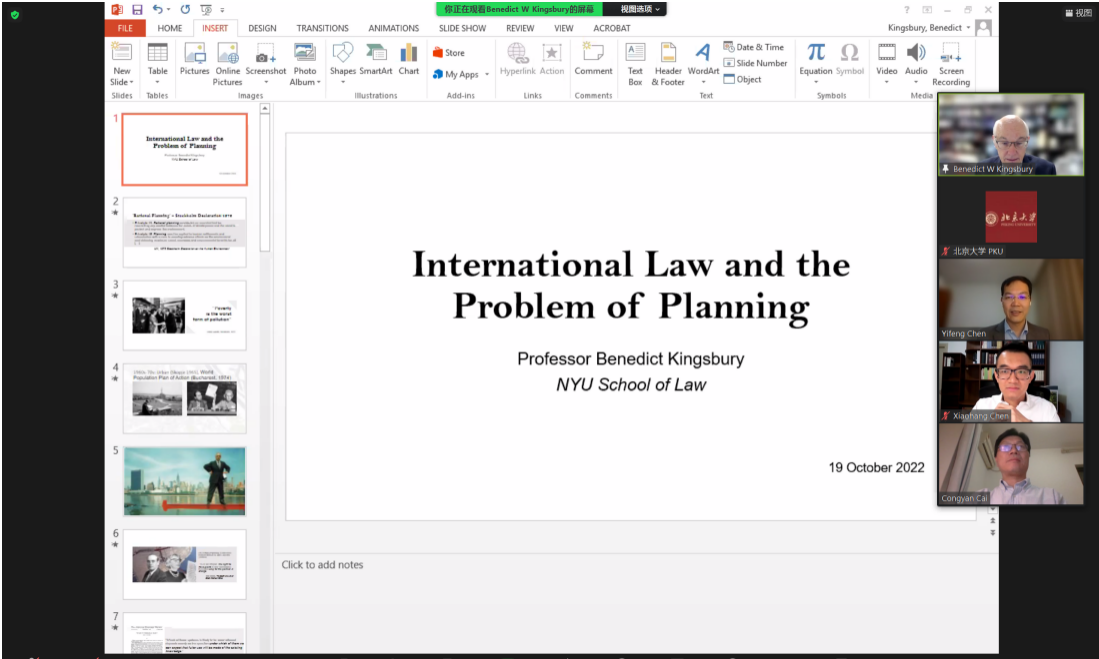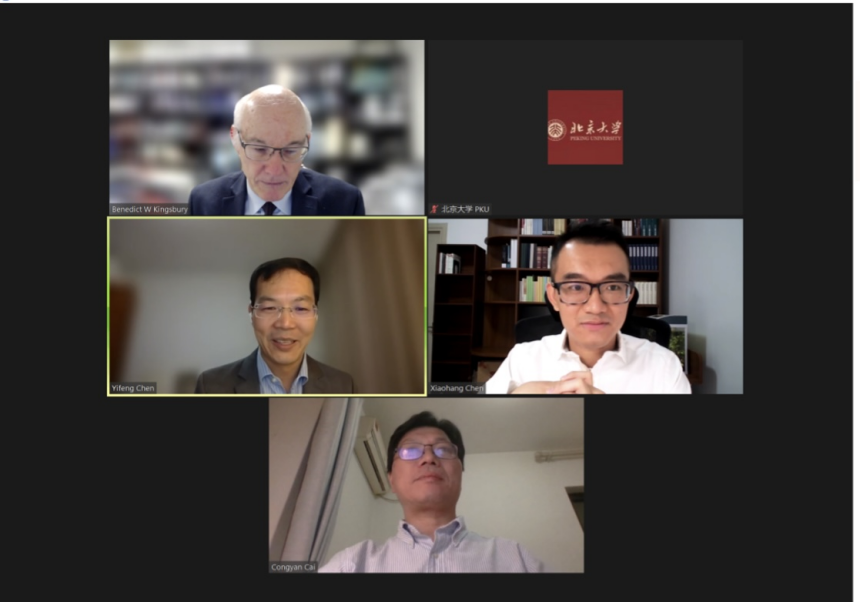The Lecture Series of "The Belt and Road and International Governance"-"Some Issues Related to International Law and Planning" was Successfully Held
Date:2023-03-06
On the evening of October 19, 2022, the series of lectures on "the Belt and Road and International Governance" at Peking University - "Some Issues Related to International Law and Planning" was successfully held online. The lecture was delivered by Professor Benedict Kingsbury, Vice Dean of the School of Law of New York University and Director of the Institute of International Law and Justice, presided over by Chen Yifeng, Associate Professor of the School of Law, and invited Dr. Chen Xiaohang, a postdoctoral researcher of the School, and Professor Cai Congyan of the School of Law of Fudan University as reviewers.

Professor Benedict Kingsbury is currently the vice dean of the New York University School of Law and the director of the Institute of International Law and Justice, and chairs the Guarini Global Law and Technology Program of New York University.
Before the lecture, Associate Professor Chen Yifeng introduced Professor Benedict Kingsbury's field of international law research to the audience, emphasized the innovation of Professor Kingsbury's academic research, which provided many new ideas and inspiration for the international law community, and on behalf of the international law teachers and students of Peking University, welcomed and thanked Professor Kingsbury for his lecture.
Professor Kingsbury first showed us a quotation from the 1972 Stockholm Declaration in his lecture, which shows that the international law community and international organizations at that time attached importance to the concept of "planning".
Even though the planning itself may have various limitations, Professor Kingsbury pointed out that its significance for world development is still huge, especially in the field of international environmental law. The problems faced by international environmental law are often long-standing, so it is necessary to establish a planned long-term governance plan for it. Finally, Professor Kingsbury introduced the concept of indicators. Indicators are not only a form of knowledge, but also a governance technology. They are important references in the planning and implementation process.
Dr. Chen Xiaohang commented on the status of planning in international law, the flexibility of "absorption" and "exclusion" of planning in narrative, and the potential interlocutors of planning issues. Professor Cai Congyan pointed out that Professor Kingsbury had a good understanding of the concept of planning. Starting from the application of the Chinese system to planning, he introduced the important role of planning in China's development process, and believed that in the current context of globalization, the relevant cooperation on planning among countries around the world was worth looking forward to.
At the end of the lecture, the audience had an active exchange with Professor Kingsbury. Professor Kingsbury responded to questions such as "the role of companies and enterprises in international rules", "the value orientation of the codification of international law rules", "the difference between planning and management measures", and "factors affecting international rules".
With the theme of "Several issues related to international law and planning", this lecture elaborated on the development process and significance of the concept of "planning" in international law, aiming to further promote the in-depth study of the international governance mechanism by the School of Law of Peking University, deepen the understanding of the function and role of international law by the Chinese academic community, and achieved complete success.


Translated by: Zhu Yichun
Edited by:Chen Hong



